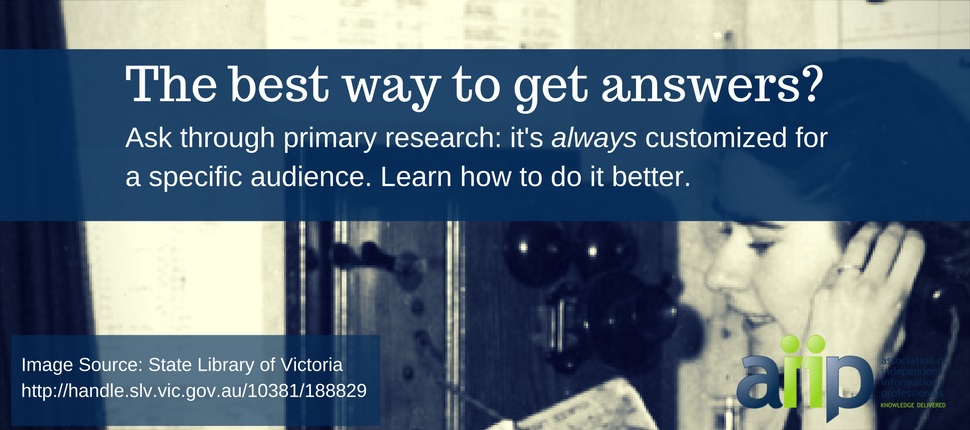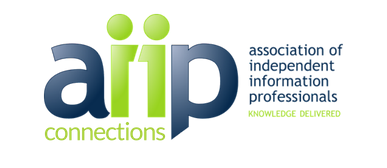How to make it in primary research

As Independent Information Professionals (IIPs), we’re researchers, analysts, designers, and consultants serving clients across business, education, government, and non-profit sectors. We’re good at what we do – and we don’t miss the daily 9-5 routine!
Many of our members excel at primary research and love conducting interviews and focus groups to get at the heart of clients’ needs.
Primary research may involve:
- interviewing industry representatives or subject matter experts to develop insights into emerging markets or products; or
- conducting surveys to provide insights into attitudes and sentiment.
Since primary research is always customized for a specific audience, it is often the best way to get answers to specific questions.
Research techniques include surveys, interviews and focus groups among others; they may be quantitative and qualitative in nature. Primary research contrasts with secondary research, which reviews and analyses existing information on a topic.
AIIP members with expertise in this area can help
Experienced primary researchers can help you select, develop and execute appropriate research designs and sampling protocols.
They often have expertise in statistics and standards of scientific research.
Arthur Weiss from AWARE has over twenty years of experience in primary research. He shares his top 6 tips on how to make it in primary research:
1. Don’t be scared
The people you are speaking to won’t bite.
2. Do some preliminary research
Find out as much as possible about the interviewees and the topic using secondary research tools. Google them. Look them up on LinkedIn. Are they in the news?
The aim is to be relaxed and in command of the topic so they don’t blindside you with anything. If they do, you are cool about it and don’t need to sound unprepared by asking for an explanation.
3. Know the law
Can you record any interview? Do you need to tell interviewees that you are recording?
Respect confidentialities – those of your client and of your interviewees: Should they say “oops – shouldn’t have told you that, it’s confidential” you cannot pass the information on.
4. Think about how your interviewees will react
What is their persona? Do they want to be helpful? If so, ask for their help. Do they think they are the world expert in the topic? If so, praise them and say you are calling because they are known as the world expert on xyz.
What can get them to talk to you? Naïveté? Sometimes that’s the best approach. At other times, you may need to be seen as a colleague to confide in.
Also consider when to call … how do you like getting calls for help at 8.55am on a Monday or 4.55pm on a Friday?
5. You are asking for information
That means you need interviewees to talk.
So don’t blow your own trumpet.
Prompt them.
Again – think about what will encourage them to talk. Essentially, you are a blank page they are writing on. Suspend your own ego to let them express theirs.
6. Be ethical
Never misrepresent yourself or lie about who you are. At the same time, keep client confidentiality – that usually means you cannot divulge that name or the full reasons for calling.
Arthur Weiss, AW Marketing (AWARE), UK
AWARE specialises in competitive intelligence services and support for UK businesses. Services include competitor research, marketing and industry intelligence, analysis, scenario planning and training.
Research & consultancy focuses on the UK and Europe and includes B2B surveys, qualitative in-depth research and online research looking at companies (competitors, customers, distributors, due diligence, etc.) and markets.
For more tips download the AIIP free guide on Getting Started as an Independent Information Professional.





